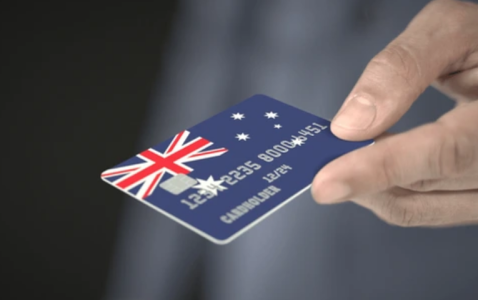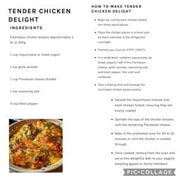Are You Making This Costly Mistake With Your Bank Accounts? What You Need to Know About Having Multiple Accounts
By
Gian T
- Replies 0
In today’s digital age, opening a new bank account is as easy as making a cuppa—just a few taps on your phone or clicks on your computer, and you’re set. But as our financial lives get more complicated, many of us are left wondering: is it really okay to have multiple bank accounts? And if so, how many is too many? Should you stick to one bank, or spread your money around? Let’s dive into the ins and outs of managing multiple bank accounts, and see if you’re making the most of your money—or just making things harder for yourself.
Why Do People Have Multiple Bank Accounts?
It turns out, having more than one bank account is pretty common in Australia. According to the Australian Banking Association, the average Aussie has about 2.4 bank accounts. That might sound like a lot, but when you think about it, it makes sense. Many of us have an everyday account for bills and groceries, a savings account for that dream holiday or emergency fund, maybe a joint account with a partner, and perhaps even a separate account for a home loan or offset purposes.
Take finance adviser Kate McCallum, for example. She and her husband have accounts spread across three different banks—each serving a specific purpose, from daily spending to mortgage offset. For them, it’s not about the number of accounts, but about making sure each one has a clear job.
'There’s no ‘right number’,' Kate says. 'If you have multiple accounts and they each have a purpose, bravo. But many people end up with umpteen accounts that may have had a great reason originally and now have none—and it compounds when you couple.'
How Many Accounts Do Most People Have?
A recent straw poll on social media found that 43% of people have between three and four accounts, while 32% have one or two. Some even have five, six, or more! But is there a point where it becomes too much?
The Downsides of Too Many Bank Accounts
While having a few accounts can help you organise your finances, too many can actually cause more harm than good. Here are some of the common pitfalls:
Consumer advocate Andy Kollmorgen from Choice warns that it’s important to check for fees, especially if you’re setting up several accounts for budgeting purposes. 'All fees will need to be disclosed on the relevant product disclosure statement for the account, which you can find on the website,' he says. And don’t forget about those sneaky overdraft fees if you accidentally let an account go into the red!
The Hidden Cost: Forgotten Money
Did you know Australians have about $2.3 billion sitting in forgotten bank accounts, shares, and life insurance? That’s a lot of money gathering dust! It’s easy to lose track of old accounts, especially if you’ve switched banks or set up accounts for specific purposes years ago.
How to Make Multiple Accounts Work for You
If you do have several accounts, the key is to make sure each one has a clear purpose. Here are some ideas to help you organise your finances:
Thinking About Consolidating? Here’s How
If you’re feeling overwhelmed by the number of accounts you have, it might be time to simplify. Here’s a step-by-step guide:
 How many bank accounts do you have? Do you find it helpful to have different accounts for different purposes, or is it just a headache? Have you ever discovered a forgotten account with a surprise windfall? Share your stories and tips in the comments below—we’d love to hear how you manage your money!
How many bank accounts do you have? Do you find it helpful to have different accounts for different purposes, or is it just a headache? Have you ever discovered a forgotten account with a surprise windfall? Share your stories and tips in the comments below—we’d love to hear how you manage your money!
And remember, there’s no one-size-fits-all answer. The best banking setup is the one that works for you and helps you feel in control of your finances. Happy banking, members!
Read more: 'They don't tell you any information': Man exposes significant flaw that can drain your bank accounts
Why Do People Have Multiple Bank Accounts?
It turns out, having more than one bank account is pretty common in Australia. According to the Australian Banking Association, the average Aussie has about 2.4 bank accounts. That might sound like a lot, but when you think about it, it makes sense. Many of us have an everyday account for bills and groceries, a savings account for that dream holiday or emergency fund, maybe a joint account with a partner, and perhaps even a separate account for a home loan or offset purposes.
Take finance adviser Kate McCallum, for example. She and her husband have accounts spread across three different banks—each serving a specific purpose, from daily spending to mortgage offset. For them, it’s not about the number of accounts, but about making sure each one has a clear job.
'There’s no ‘right number’,' Kate says. 'If you have multiple accounts and they each have a purpose, bravo. But many people end up with umpteen accounts that may have had a great reason originally and now have none—and it compounds when you couple.'
How Many Accounts Do Most People Have?
A recent straw poll on social media found that 43% of people have between three and four accounts, while 32% have one or two. Some even have five, six, or more! But is there a point where it becomes too much?
The Downsides of Too Many Bank Accounts
While having a few accounts can help you organise your finances, too many can actually cause more harm than good. Here are some of the common pitfalls:
- Stress and Confusion: Juggling multiple accounts can make it hard to keep track of your money, leading to stress and even relationship tension.
- Losing Track of Funds: With money scattered across different accounts, it’s easy to lose sight of where your cash is going—or worse, forget about an account altogether.
- Wasted Time: Managing lots of accounts means more time spent moving money around, checking balances, and updating details.
- Fees and Charges: Some banks charge account-keeping or administrative fees, and if you’re not careful, these can add up quickly, especially if you’re paying fees on accounts you barely use.
The Hidden Cost: Forgotten Money
Did you know Australians have about $2.3 billion sitting in forgotten bank accounts, shares, and life insurance? That’s a lot of money gathering dust! It’s easy to lose track of old accounts, especially if you’ve switched banks or set up accounts for specific purposes years ago.
How to Make Multiple Accounts Work for You
If you do have several accounts, the key is to make sure each one has a clear purpose. Here are some ideas to help you organise your finances:
- Workhorse Account: For daily transactions like bills, groceries, and petrol.
- Wants & Wishes Account: Your personal 'fun money' for guilt-free spending.
- Wow Account: For specific savings goals, like a holiday or a new car.
- Wealth Builder: For long-term savings or an offset account linked to your mortgage.
If you’re feeling overwhelmed by the number of accounts you have, it might be time to simplify. Here’s a step-by-step guide:
- Identify All Your Accounts: Make a list of every account you have, including savings, transaction, and joint accounts.
- Choose Where to Consolidate: Decide if you want to keep your main account at your current bank or move to a new one with better rates or lower fees.
- Transfer Your Money: Move your funds from the accounts you’re closing to your chosen account.
- Update Direct Debits and Payments: Make sure to update your banking details with any service providers to avoid missed payments.
- Close Old Accounts: Once everything’s moved over, close any accounts you no longer need.
Key Takeaways
- There’s no 'right number' of bank accounts to have — it depends on your needs, but each account should have a clear purpose to avoid confusion and unnecessary complexity.
- Having too many accounts can create stress, make it easier to lose track of your money, and waste time, especially if fees and forgotten bills start to add up.
- It’s important to check your accounts for ongoing fees and forgotten accounts, as Australians have billions in unclaimed money from old bank and insurance accounts.
- Consolidating accounts can simplify your finances — identify all your accounts, assign each a purpose, and consider closing those you don’t need while updating direct payments to prevent disruptions.
And remember, there’s no one-size-fits-all answer. The best banking setup is the one that works for you and helps you feel in control of your finances. Happy banking, members!
Read more: 'They don't tell you any information': Man exposes significant flaw that can drain your bank accounts








